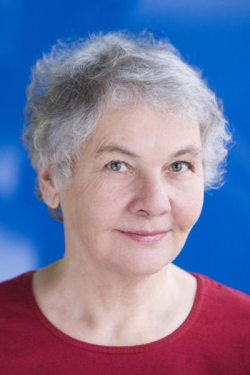Christiane Nusslein-Volhard

- Born
- 20 October 1942
Christiane Nusslein-Volhard is an inspirational German geneticist and Nobel laureate who is well recognised for her contributions to our understanding of embryonic development. Her most significant and award winning work was her in-depth research into identifying the genes responsible for transforming single celled organism into complex organism, in the common fruit fly (Drosophila melanogaster).
One of only fifteen women to have won a science Nobel Prize, Christiane Nusslein-Volhar was born during the war, on 20th October 1942 and grew up in Frankfurt, Germany. Living close to the forests and fields outside of Frankfurt, and spending the last years of the war at her grandparents’ house in the country fed her passion for living creatures and the natural sciences. Her parents also encouraged her ambitions to be a leading female biologist, often buying her books and other material that she would ask for. At school, her aptitude for the sciences became apparent, whilst reports labelled her as “lazy”, her ability to understand and create her own theories was acknowledged by her teachers.
Christine used her natural talent to help her through school and in 1964 and, after much deliberation, was persuaded to join a new biochemistry course at the University of Tübingen. Here her interest in microbiology and genetics grew.
Upon finishing her postdoctoral fellowship in Basel, Switzerland, and Freiburg, Germany she accepted her first independent research position at the European Molecular Biology Laboratory and it was here that she met Eric Wieschaus in the late 1970’s and they began their ground-breaking research into the genetic controls of embryonic development in the fruit fly.
The pair of scientists chose the fruit fly because of its rapid development and its ability to be observed under a dual microscope. Their initial step was to design a new genetic tool, saturation mutagenesis, soaking fruit flies in Ethyl methanesulfonate. They generated random mutations within the fruit fly that could be seen in their offspring during development. They could then screen the results against the DNA of non-mutated flies to see which genes had been affected. Through this process they identified approximately 20,000 genes in the fly’s chromosomes, about 5,000 of them were important to early development and 139 were essential. They also discovered three types of fruit fly genes that were solely responsible for the generation of the insect’s body.
Nüsslein-Volhard and her collaborators were awarded the Nobel Prize in 1995 for their huge steps forward in understanding how organisms develop from a single cell into morphologically complex forms during embryonic development.
Nüsslein-Volhard returned to Tübingen in 1981 and has served as the Director of the genetics division of the Max Planck Institute for Developmental Biology since 1985. She has carried out further investigations since and in the late 1990’s created a system for studying the process of blood creation through systematic mutations in Zebra Fish. Her continued passion to delve deeper into the genetic factors in development have given invaluable insight into human disease.
In 2004 she opened the Christiane Nusslein-Volhard foundation to help aspiring German Female Scientists with childcare.



